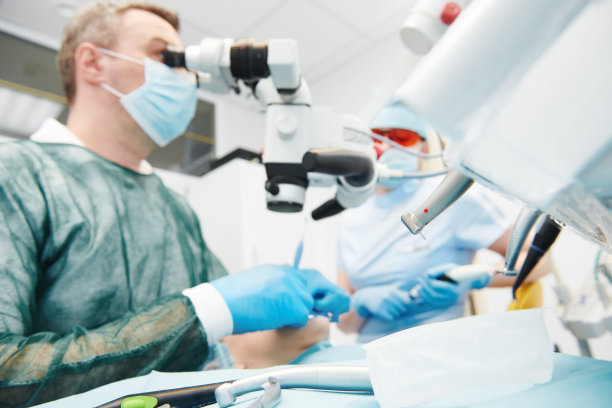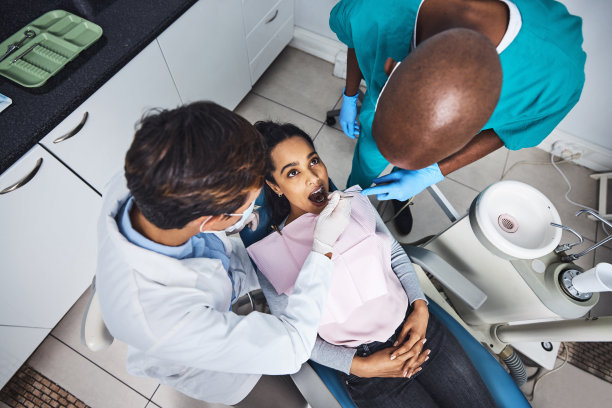Summary: Dental fillings are essential for restoring teeth affected by decay or damage, ensuring optimal oral health. To achieve the best results from dental filling procedures, there are critical steps and precautions to take both before and after the treatment. This article explores four key aspects: the importance of pre-treatment consultations, preparation and dietary considerations, post-treatment care protocols, and the significance of regular dental check-ups. By adhering to these guidelines, patients can enhance their recovery and maintain long-lasting oral health following their dental filling procedures.
1. Importance of Pre-Treatment Consultations

Before undergoing a dental filling procedure, scheduling a consultation with your dentist is vital. During this appointment, the dentist will evaluate the affected tooth and discuss the extent of decay or damage. Understanding the specific needs of your dental health allows the dentist to recommend the best filling material suited for your individual case.
Moreover, pre-treatment consultations provide an opportunity for patients to discuss any concerns they may have regarding the procedure. This open dialogue can help alleviate anxiety about the process, ensuring a more comfortable experience on the day of treatment. Patients may inquire about the anesthesia methods used, potential side effects, and what to expect during the procedure.
These consultations are not only about the filling itself; they also serve as a vital touchpoint for education on oral hygiene practices. Dentists can provide personalized recommendations for maintaining optimal oral health, which can prevent further issues down the line.
2. Preparation and Dietary Considerations
Preparing for a dental filling involves more than just showing up for the appointment. Patients should follow specific dietary guidelines leading up to their procedure. It is advisable to avoid consuming meals that are overly sugary or acidic, as these foods can exacerbate tooth sensitivity and decay.
Furthermore, if anesthesia is involved, patients may need to refrain from eating for a few hours before the appointment. This is particularly true for those receiving sedation, as having a full stomach can complicate the procedure and recovery. Always adhere to your dentists pre-procedure instructions to ensure a smooth experience.
Lastly, arranging transportation is a critical step. After the procedure, patients may experience numbness or drowsiness due to anesthesia. Therefore, having someone available to drive you home not only ensures safety but also allows you to rest comfortably after the treatment.
3. Post-Treatment Care Protocols
After the dental filling procedure, adhering to proper post-treatment care is crucial to maintain the integrity of the filling and overall oral health. First and foremost, its essential to avoid chewing on the side of the mouth where the filling was placed until the numbness has completely worn off. Chewing can lead to accidental biting or damaging the new filling.
Patients should also be mindful of what they eat in the initial days following the procedure. Soft foods are recommended to avoid any undue pressure on the filling. If discomfort or sensitivity occurs, over-the-counter pain relief may help; however, consulting with your dentist is advisable if the pain persists.
Regular oral hygiene practices are equally important. Brushing and flossing should be practiced as usual, but extra care must be taken around the filled tooth to ensure no food particles accumulate, which may lead to decay beneath the filling.
4. Significance of Regular Dental Check-Ups
Long-term oral health following a dental filling greatly depends on regular check-ups with your dentist. These visits allow the dentist to monitor the condition of the filling and the surrounding teeth. The dentist can promptly identify any issues, such as cracks or recurring decay, that may develop over time.
During these appointments, dentists will also provide professional cleanings, which are critical in preventing plaque buildup that can undermine the integrity of the filling. Proactive dental care helps in preserving the quality of the filling and overall tooth health.
Furthermore, check-ups serve as an opportunity to reassess your oral hygiene routine and make adjustments as needed. By investing in regular dental visits, you can ensure that your fillings and overall oral health remain in optimal condition.
Summary:
In conclusion, taking essential steps and precautions before and after dental filling procedures is crucial for achieving optimal oral health. From consulting with your dentist to ensuring proper post-treatment care and scheduling regular check-ups, these practices contribute significantly to the longevity and success of dental fillings.
This article is compiled by Vickong Dental and the content is for reference only.
Vickong Dental
Vickong Dental is a large medical group established in Hong Kong in 2008 by professors from well-known medical universities in Guangdong and Hong Kong, as well as medical doctors from key national '985' universities (including Master's supervisors and senior professors). The chain of branches brings together expert dentists with PhDs and Master's degrees from Hong Kong and Mainland China, committed to providing high-quality dental treatment.
"Vickong Dental Practices the University Motto of 'Healing and Serving Society,' with a Stable Operation for Sixteen Years. It Has Been honored with Hong Kong Enterprise Leaders's Choice,' and is a Global Trusted Implant Center for the Nobel Implant System. Recommended by Hong Kong Metro Broadcast and Guangdong Television, it Serves Customers from Over Thirty Countries and Regions, Gaining the Trust and Favor of Citizens from the Guangdong-Hong Kong-Macau Greater Bay Area and Surrounding Cities.

Thousands of customers' unanimous praise
The most recognized and highly recommended dental service by customers in the Guangdong-Hong Kong-Macau Greater Bay Area
We Ensure You Receive Detailed Care and Attention Here
Hong Kong standards, Shenzhen prices, Your Trusted English-speaking dentists

Vickong Dental Medical-Grade Instrument Disinfection Process
Vickong Dental Medical-Grade Instrument Disinfection Process

Vickong Dental Chain: A Warm and Comfortable Environment for Treatment






Appointment Hours

Q&A
Why choose Vickong Dental?
Vickong Dental practices the university motto 「Medicine to Benefit Society」, with each branch bringing together highly qualified dentists with doctoral and master’s degrees from Hong Kong and the Mainland, and has maintained seventeen years of steady operation。Recipient of 「2024 Hong Kong Enterprise Leaders Brand」, 「2025 Hong Kong Enterprise Leaders Brand」, a Nobel Biocare Global Trusted Implant Center, and a brand recommended by Metro Radio Hong Kong and Guangdong TV。
To date, we have served customers from more than thirty countries and regions,earning exceptionally high word-of-mouth recognition and trusted recommendations from residents across the Guangdong-Hong Kong-Macao Greater Bay Area and surrounding cities
We have eight major branches in Zhuhai、Shenzhen,and a consultation and service assurance center in Hong Kong,so you can book a free consultation at any time for any questions,which is very reassuring.
If I do not accept the quotation after the CT scan, will I be charged??
No! As long as the actual treatment has not started, you will not be charged any fees.
Will there be any additional charges during the treatment process?
No, there won’t be any additional charges. Before treatment begins, we will clearly explain the treatment plan and its corresponding fees. Only after the patient agrees and signs the consent form will we proceed with the dental service.
Can I pay in Hong Kong dollars?
Yes. Vickong Dental accepts payment in Hong Kong dollars. The amount will be converted based on the exchange rate of the day, and the applicable rate will be clearly communicated to you in advance.
Can I reschedule my appointment at any time?
Yes. Please contact us via **WeChat** or **WhatsApp** as early as possible, providing your original appointment time and details, along with your preferred new date and time slot for rescheduling.













